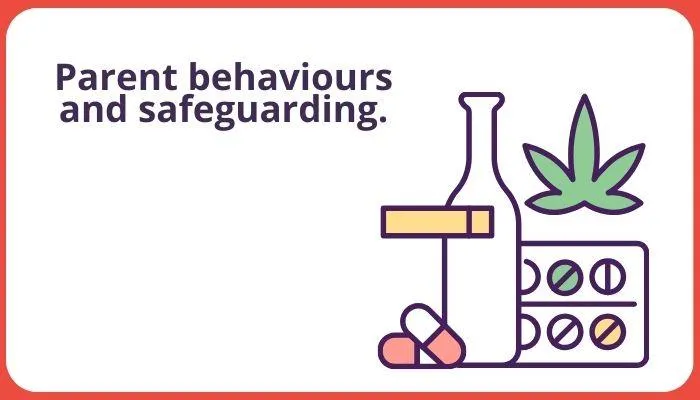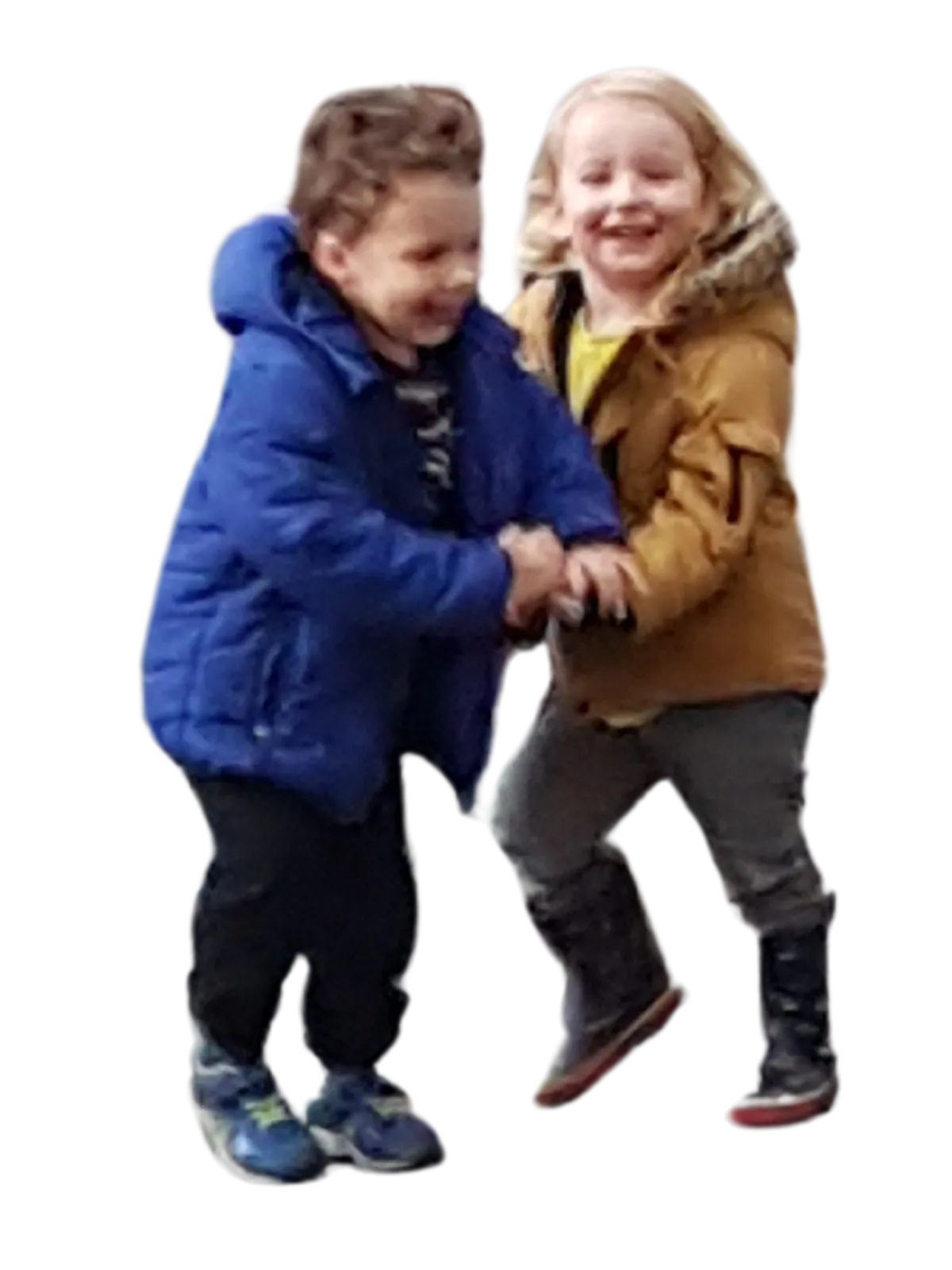Every child's well-being matters.
Types of Abuse Articles
Quick Access
Abuse of Authority
Abuse of Discretion
Abuse of Power
Behavioural Indications
Breast Ironing
County Lines
Cultural Differences (Physical Abuse)
Domestic Abuse
Economic Abuse
Emotional Signs
Exposure to Substance Abuse
Failure to Thrive
Female Genital Mutilation (FGM)
Forced Marriage
Hate Crimes & Targeted Harassment
Impact of Domestic Violence
Impact of Environment
Impact on Development
Institutional Abuse
Isolation
Modern Slavery
Neglect
Online Abuse
Parental Behaviours
Physical Abuse
Radicalisation
Religious Abuse
Restraint
Sexual Abuse
Types of Abuse
Witnessing Domestic Abuse

What sort of parental behaviours may indicate a child is more likely to be abused?
Custom HTML/CSS/JAVASCRIPT
Child abuse is a serious concern that can have lasting effects on a child's well-being. While it's essential to remember that no single behaviour guarantees that abuse is occurring, some signs in parental behaviour might raise concerns. Recognising these signs is crucial for ensuring the safety and protection of children.
Parents who frequently show anger or violence towards their child or others may be engaging in more harmful behaviour – and indeed, any violent act should be seen as abuse immediately. It is essential to pay attention if you see someone hurting others or being angry all the time.
If parents always tell their child what to do, who to be friends with, or make all the decisions, it could be a sign of a problem. Children need space to grow and make their own choices.
Sometimes, parents expect too much from their child or expect them to do things that are too hard for their age. This can be tough for a child and might indicate a problem at home. Some of this is normal, and comes from a place where parents don’t have the same understanding of child development as you – but constant chastising around not achieving is difficult for any child to bear.
Keeping a child away from friends, family, or others is not okay. Children need to have different people in their lives to talk to and be with.
If a child often has bruises or injuries that don't make sense, it could be a sign that something isn't right. Parents should always keep their children safe and not hurt them.
Hurtful words or consistently making a child feel bad about themselves can be a type of abuse. Parents need to encourage and support their children.
Parents must ensure their child has everything they need, like food, clothes, and a safe place to live. If a child is not getting these things, it's a severe problem and indicates neglect.
Sometimes, parents might have a problem with drugs or alcohol. When parents use these things too much, it can make it hard for them to care for their child correctly. Do you notice the smell around one particular parent? Consider recording it and noting the pattern. Is it every time? Once a month? In the morning, or only in the afternoon, or both?
If parents are sad or angry all the time and not getting help, it can affect how they care for their child. Parents should try to get help if they are feeling this way.
If a parent has a history of hurting others or being hurt, it is important to take extra notice. Sometimes, people who were hurt before might not know how to care for a child correctly.
Keeping an eye out for these signs can help ensure children are safe and protected.
Quick Access
Abuse of Authority
Abuse of Discretion
Abuse of Power
Behavioural Indications
Breast Ironing
County Lines
Cultural Differences (Physical Abuse)
Domestic Abuse
Economic Abuse
Emotional Signs
Exposure to Substance Abuse
Failure to Thrive
Female Genital Mutilation (FGM)
Forced Marriage
Hate Crimes & Targeted Harassment
Impact of Domestic Violence
Impact of Environment
Impact on Development
Institutional Abuse
Isolation
Modern Slavery
Neglect
Online Abuse
Parental Behaviours
Physical Abuse
Radicalisation
Religious Abuse
Restraint
Sexual Abuse
Types of Abuse
Witnessing Domestic Abuse

What sort of parental behaviours may indicate a child is more likely to be abused?
Custom HTML/CSS/JAVASCRIPT
Child abuse is a serious concern that can have lasting effects on a child's well-being. While it's essential to remember that no single behaviour guarantees that abuse is occurring, some signs in parental behaviour might raise concerns. Recognising these signs is crucial for ensuring the safety and protection of children.
Parents who frequently show anger or violence towards their child or others may be engaging in more harmful behaviour – and indeed, any violent act should be seen as abuse immediately. It is essential to pay attention if you see someone hurting others or being angry all the time.
If parents always tell their child what to do, who to be friends with, or make all the decisions, it could be a sign of a problem. Children need space to grow and make their own choices.
Sometimes, parents expect too much from their child or expect them to do things that are too hard for their age. This can be tough for a child and might indicate a problem at home. Some of this is normal, and comes from a place where parents don’t have the same understanding of child development as you – but constant chastising around not achieving is difficult for any child to bear.
Keeping a child away from friends, family, or others is not okay. Children need to have different people in their lives to talk to and be with.
If a child often has bruises or injuries that don't make sense, it could be a sign that something isn't right. Parents should always keep their children safe and not hurt them.
Hurtful words or consistently making a child feel bad about themselves can be a type of abuse. Parents need to encourage and support their children.
Parents must ensure their child has everything they need, like food, clothes, and a safe place to live. If a child is not getting these things, it's a severe problem and indicates neglect.
Sometimes, parents might have a problem with drugs or alcohol. When parents use these things too much, it can make it hard for them to care for their child correctly. Do you notice the smell around one particular parent? Consider recording it and noting the pattern. Is it every time? Once a month? In the morning, or only in the afternoon, or both?
If parents are sad or angry all the time and not getting help, it can affect how they care for their child. Parents should try to get help if they are feeling this way.
If a parent has a history of hurting others or being hurt, it is important to take extra notice. Sometimes, people who were hurt before might not know how to care for a child correctly.
Keeping an eye out for these signs can help ensure children are safe and protected.

What sort of parental behaviours may indicate a child is more likely to be abused?
Custom HTML/CSS/JAVASCRIPT
Child abuse is a serious concern that can have lasting effects on a child's well-being. While it's essential to remember that no single behaviour guarantees that abuse is occurring, some signs in parental behaviour might raise concerns. Recognising these signs is crucial for ensuring the safety and protection of children.
Parents who frequently show anger or violence towards their child or others may be engaging in more harmful behaviour – and indeed, any violent act should be seen as abuse immediately. It is essential to pay attention if you see someone hurting others or being angry all the time.
If parents always tell their child what to do, who to be friends with, or make all the decisions, it could be a sign of a problem. Children need space to grow and make their own choices.
Sometimes, parents expect too much from their child or expect them to do things that are too hard for their age. This can be tough for a child and might indicate a problem at home. Some of this is normal, and comes from a place where parents don’t have the same understanding of child development as you – but constant chastising around not achieving is difficult for any child to bear.
Keeping a child away from friends, family, or others is not okay. Children need to have different people in their lives to talk to and be with.
If a child often has bruises or injuries that don't make sense, it could be a sign that something isn't right. Parents should always keep their children safe and not hurt them.
Hurtful words or consistently making a child feel bad about themselves can be a type of abuse. Parents need to encourage and support their children.
Parents must ensure their child has everything they need, like food, clothes, and a safe place to live. If a child is not getting these things, it's a severe problem and indicates neglect.
Sometimes, parents might have a problem with drugs or alcohol. When parents use these things too much, it can make it hard for them to care for their child correctly. Do you notice the smell around one particular parent? Consider recording it and noting the pattern. Is it every time? Once a month? In the morning, or only in the afternoon, or both?
If parents are sad or angry all the time and not getting help, it can affect how they care for their child. Parents should try to get help if they are feeling this way.
If a parent has a history of hurting others or being hurt, it is important to take extra notice. Sometimes, people who were hurt before might not know how to care for a child correctly.
Keeping an eye out for these signs can help ensure children are safe and protected.
Quality Early Years Ltd.,
Dickens House,
Guithavon Street,
Witham, Essex,
England, CM8 1BJ
© Quality Early Years Ltd 2025

Find On the Button
on Social Media

